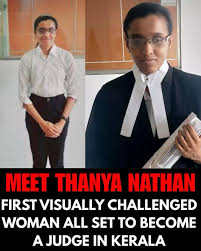Rekha Mittal, J.@mdashThe present petition u/s 482 of the Code of Criminal Procedure (for short "Cr.P.C.") has been preferred seeking quashing of FIR No. 185 dated 16.8.2012 under Sections 3, 4, 5 of the Immoral Traffic (Prevention) Act, 1956 (for short "the Act") and Sections 420 and 377 of the Indian Penal Code (for short "IPC") (Annexure P-1) and proceedings emanating therefrom.
2. The sole submission made by counsel for the petitioner is that the Assistant Commissioner of Police, Model Town, Jalandhar, is not competent to conduct investigation in regard to offences registered under the Act as the investigation in these cases can be conducted by a Special Police Officer appointed in this behalf by the State Government in compliance with the provisions of Section 13 of the Act. It is further argued that the Department of Home Affairs and Justice (Judicial Branch), Government of Punjab issued notification No. 14/129/2003-3 Judl. 1/5042 dated 22.12.2003 in exercise of powers conferred by Sub Section 3 of Section 13 of the Act and as per the said notification, the Assistant Commissioner of Police has not been appointed as a Special Police Officer. It is further argued that in view of the notification, Deputy Superintendent of Police (for short "DSP") (Detective) and DSP (Crime Wing) are appointed as Special Police Officers and no other DSP is appointed as such to be Special Police Officer for dealing with offences under the Act in a specified area. It is strenuously argued that the investigation conducted by an officer other then Special Police Officer is vitiated, therefore, the proceedings are liable to be quashed. In support of his contention, he has relied upon
3. On August 16, 2013, the following order was passed by this Court:-
"A perusal of the reply filed by Sarabjit Singh, Assistant Commissioner of Police, Jalandhar does not make the picture clear.
Counsel for the State of Punjab is directed to file a short reply by way of affidavit of an officer not below the rank of Joint Secretary, Department of Home Affairs and Justice (Judicial Branch), if the Assistant Commissioner of Police has been authorized as a Special Police Officer in view of notification dated 22.12.2003 (Annexure R-2).
Adjourned to 4.9.2013."
4. In pursuance of this order, Dhanbir Singh Bains, Principal Secretary, Home, Government of Punjab, Department of Home Affairs and Justice, Chandigarh filed his affidavit which is exactly copy of the reply by way of affidavit of Sarabjit Singh, Assistant Commissioner of Police, Model Town, Jalandhar dated 14.5.2013. Later, another reply by way of short affidavit of Sarvjit Singh, Secretary to Government Punjab, Department of Home Affairs and Justice was filed and a relevant extract therefrom reads as follows:-
"2. That apropos to the directions of the Hon''ble Court issued on 16.8.2013, it is submitted that DSPs (Deputy Superintendents of Police) were authorized as Special Police Officers for the purpose of dealing with offences under Immoral Traffic (Prevention) Act, 1956 and that after the Police Commissionerate System was introduced, DSPs in the Commissionerates were re-designated ACPs (Assistant Commissioner of Police).
3. That as such Assistant Commissioner of Police is authorized to investigate offences under the Immoral Traffic (Prevention)
Act, 1956."
5. In response to this affidavit, the petitioner filed a counter affidavit stating that only DSP (Detective) and DSP (Crime Wing) are appointed as Special Police Officers and other DSPs are not so appointed as Special Police Officers. Para 2 of the affidavit filed by the petitioner reads as follows:-
"That the respondent has not placed on record any notification to show that Assistant Commissioner of Police has been authorized as Special Police Officer in view of notification dated 22.10.2003 (Annexure R-2), so it is submitted that Assistant Commissioner of Police is not authorized special police officer as required in view of Section 13 of the Immoral Traffic (Prevention) Act, 1956, thus, Assistant Commissioner of Police is not authorized to investigate offences under the Immoral Traffic (Prevention) Act, 1956."
6. Counsel for the State of Punjab, in view of affidavit of Sarabjit Singh IAS, Secretary to Government of Punjab has submitted that as DSPs were appointed as Special Police Officers for the purpose of dealing with offences under the Act and after the Police Commissionerate System was introduced, DSPs in the Commissionerate were re-designated as Assistant Commissioners of Police, therefore, they are competent to investigate offences under the Act.
7. In reply, counsel for the petitioner has contended that the respondent State of Punjab has not placed on record any notification to support affidavit of Sarvjit Singh, Secretary to Government of Punjab, Department of Home Affairs and Justice, Chandigarh that the Assistant Commissioners of Police are appointed as Special Police Officers.
8. I have heard counsel for the parties and perused the case file.
9. Section 13 of the Act provides for Special Police Officer and Advisory Body. A relevant extract from Section 13 is quoted hereunder for ready reference :-
"13. Special police officer and advisory body.-(1) There shall be for such area to be specified by the State Government in this behalf a special police officer appointed by or on behalf of that Government for dealing with offences under this Act in that area.
(2) The special police officer shall not be below the rank of an Inspector of Police. "
10. The Government of Punjab issued notification in the year 2003 in regard to appointment of Special Police Officers for the purposes of Section 13 of the Act and as per the said notification, DSP (Detective) and DSP (Crime Wing) in the rank of DSPs were appointed as Special Police Officers.
11. Counsel for the petitioner has not disputed that system of police commissionerate was introduced in the State of Punjab long after issuance of notification dated 22.12.2003 (Annexure R-2). Sarvjit Singh, Secretary, Government of Punjab, Department of Home Affairs and Justice, Chandigarh has filed his affidavit that DSPs were authorized as Special Police Officers for the purpose of dealing with the offences under the Act and after the introduction of Police Commissionerate System, DSPs in the Commissionerate were re-designated as Assistant Commissioners of Police. There is no requirement in law that the appointment of Special Police Officers in exercise of power u/s 13 of the Act shall be notified by way of notification.
12. Keeping in view the affidavit filed by Sarvjit Singh, Secretary to Government of Punjab, that DSPs were authorized as Special Police Officer and DSPs have been re-designated as Assistant Commissioners of Police in the Commissionerate System, I find myself unable to accept the submissions made by counsel for the petitioner that the Assistant Commissioner of Police was not competent to conduct investigation and the entire proceedings qua investigation, presentation of challan etc. are vitiated having been conducted by an officer other than Special Police Officer. In view of the peculiar facts of the instant case, the petitioner cannot gain any advantage to her contentions from the judgments cited by counsel in Delhi Administration''s case (supra), Ram Singh''s case (supra), Mumtaz alias Behri''s case (supra) and Joseph''s case (supra).
13. In view of what has been discussed hereinabove, finding no merit, the petition is dismissed. No order as to costs.

